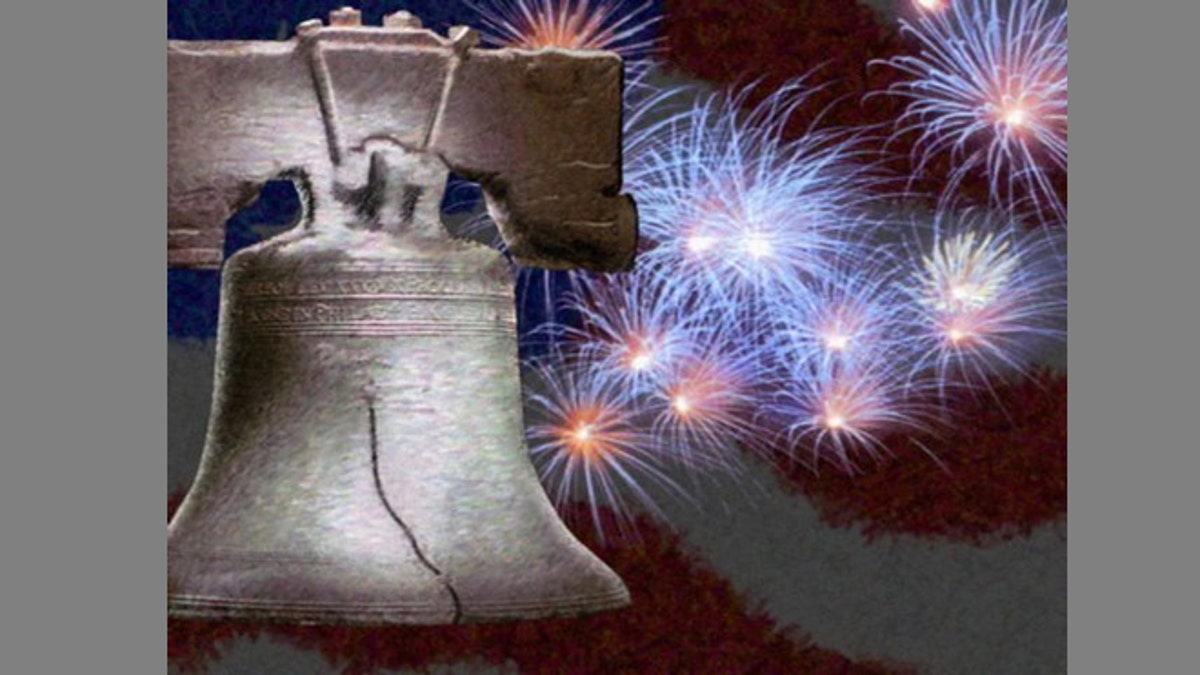
(AP)
The Liberty Bell is the icon of American independence and freedom. Rung during the first readings of the Declaration of Independence in 1776, it was abolitionists in the 1830s who gave it the name “Liberty Bell.”
Since then it has been displayed at scores of political assemblies, figuring prominently as a symbol of freedom during the Cold War and the protests of the 1960s.
Its conspicuous crack represents for many the divisions within our country that counter the force of freedom.
Yet even though this bell now hangs mute, its likeness on stamps, coins, and countless trademarks ensures that the message engraved on its crown still resounds: "Proclaim liberty throughout the land unto all the inhabitants thereof.”
Many may be surprised to learn that these stirring words are a quotation from the Old Testament/Hebrew Bible book of Leviticus.
[pullquote]
For contemporary readers of the Bible, Leviticus is often thought to be an archaic collection of laws, rituals, and restrictions.
Yet this book contains some of the most quoted biblical teachings, like “Love your neighbor as yourself,” or “love the stranger, for you were strangers in Egypt.”
As in the instructions to love neighbor and stranger, the biblical writers have a very concrete understanding of liberty, and they articulate this understanding in their social and economic guidelines.
The surrounding verses in Leviticus consist of regulations pertaining to the liberation of indentured servants, assistance for financially imperiled fellow citizens, rules on taking interest, return of property to its original owner, and even treatment of the soil.
Here, as elsewhere in Leviticus, detailed instructions culminate in general moral principles, such as: “Do not wrong one another, but fear the Lord your God.” Long life and security in the Promised Land, the biblical authors insist, require adherence to these guidelines.
The circles that produced the Bible recognized that their communities couldn’t contend with the military superpowers of their day. Hence they focused their efforts on creating a sense of belonging and solidarity—of what we might call “peoplehood”—that no army could vanquish.
In contrast to Greek thinkers of their time, they set forth a notion of freedom that had little to do with the preservation of political autonomy or liberation from tyranny.
To use a distinction introduced by the philosopher Isaiah Berlin, instead of “negative freedom”—that is, the freedom from external restraint—the biblical authors developed an ideal of freedom grounded in a sustainable social order.
Constraints on political independence prompted the biblical authors to contemplate the reality of social interdependence. Their conception of liberty emanates from a concern with their people’s survival and wellbeing.
For them freedom means liberating those who have already lost their means of prosperity.
- It means supporting those who might otherwise slide into irreversible servitude.
- It means regulating business dealings to protect the vulnerable.
- It means preventing land from accumulating in the hands of the few.
- It means also that the land itself be cared for so that it too can regenerate its resources.
The biblical laws both create a social safety net and demand that each to do his and her utmost to assist those in dire straits.
The verse quoted on the Liberty Bell emphasizes the collective nature of liberty. It is to be proclaimed to all the land’s inhabitants.
The statement grows from an insight that we are only as strong as our weakest members, that all must enjoy a piece of the pie if we are to call ourselves a free people.
Similarly, in a pivotal chapter of the book of Jeremiah, the prophet is called to stand in the most public place and warn those who come to celebrate. His message is: Don’t imagine that you can continue to exploit others and still survive as a nation.
The point is clear: a society that fails to care for the socio-economic conditions of its members and does not establish an equitable system of justice cannot endure, let alone be free.
“Someone else’s material needs are my spiritual responsibility,” said Rabbi Israel Salanter in the 19th century. Leviticus takes it even further: My freedom depends on my neighbor’s prosperity. This principle guides the Bible’s primary theme of covenant.
Why are such teachings relevant for us this Fourth of July?
We are at a point in our history when rapid technological, economic, and demographic change surpasses our ability to assess the consequences of this change.
Now more than ever it is imperative that we immerse ourselves in the study of the ancient sources that have shaped our political tradition.
The Bible, no less than ancient Greek sources, can help us as citizens—whether we be religious or secular—to consider more carefully our most cherished political symbols, such as liberty.
In the face of global economic upheaval and environmental catastrophes, public policy research agendas in America and abroad are now shifting their focus from sustainability to resilience, defined as the ability “to help vulnerable people, organizations and systems persist, perhaps even thrive, amid unforeseeable disruptions.
Where sustainability aims to put the world back into balance, resilience looks for ways to manage in an imbalanced world.”
The biblical authors responded to national defeat and disaster by devising sophisticated strategies of resilience. What Leviticus teaches is that resilience—“long life in the land”— is not only closely tied to liberation, but that our longing for independence must be balanced by an awareness of our interdependence.
